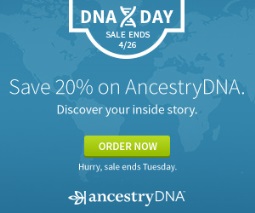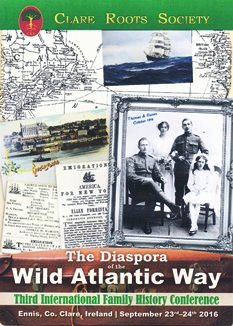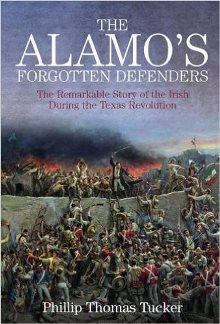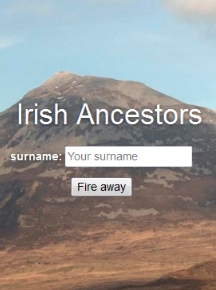Tuesday 12 April: W&R Jacob and the 1916 Rising, exhibition launch. Host: Dublin City Public Library & Archives. Venue: Business information Centre, Central Library, Ilac Shopping Centre, Henry Street,
Dublin 1. Booking essential to businesslibrary@dublincity.ie. 2:30pm. All welcome. Free.
Tuesday 12 April: Tyrone records, with Ann Robinson, and AGM. Host: North of Ireland Family History Society, Lisburn branch. Venue: Bridge Community Centre, 50 Railway Street,
Lisburn, BT28 1XP. 7:30pm. Free. All welcome.
Tuesday 12 April: Dublin Fire Brigade and the 1916 Rising, with Las Fallon. City Hall lunchtime lectures series. Host: Dublin City Council (1916/2016 Programme). Venue: Council Chambers, City Hall, Dame Street,
Dublin 2. Free. All welcome. 1:10pm. No booking but space limited.
Tuesday 12 April: The Irish in the Spanish Civil War, with Pedro Alrudez. Part of the Cork Lifelong Learning Festival. Venue: Spanish Studies Centre, 19 St Patrick's Hill,
Cork City. 1-2pm. Free. Booking or queries to spanishstudiescork@gmail.com.
Wednesday 13 April: South Dublin and the 1916 Rising in Oral Histories, with Maurice O'Keefe. Host: South Dublin CoCo. Venue: Ballyroan Library, Orchardstown Ave,
Dublin 14. 7pm. Free.
Friday 15 April: This month's
Late Opening at the Representative Church Body Library Braemor Park, Churchtown,
Dublin 14. Reading Room open until 7:30pm. No appointment is necessary.
Saturday 16 April: Using DNA in genealogy research, with Bennett Greenspan. Host: Irish Family History Forum. Venue: Bethpage Library, 47 Powell Ave.,
Bethpage, New York, USA. Lecture 11:15am, following Help Session with Kathleen McGee (10am), and Ask The Experts (10:45am).
Saturday 16 April: Cork and the Easter Rising, a day conference. Part of the Cork Lifelong Learning Festival. Host and venue: Cork City & County Archives, Seamus Murphy Building, 32 Great William O'Brien Street,
Cork City. 10:30am-3:30pm. Free. Light refreshments provided. Booking advised by email to archivist@corkcity.ie.
Fully booked.
Saturday 16 April: The Tragedy of Hulluch -the story of the German gas attack on the Irish trenches in France during WW1, a day seminar. Hosts: The Royal Dublin Fusiliers Association and Dublin City Council. Venue: Council Chamber, City Hall, Dame Street,
Dublin 2. 10:15am to 4:15pm. Free. First-come, first-served seating. Free.
Saturday 16 April: Fermanagh and the Easter Rising, with Seamas MacAnnaid. Host: Fermanagh Genealogy Centre. Venue: Enniskillen Library (hall upstairs), Halls Ln,
Enniskillen, Co Fermanagh BT74 7DR. Free. 1.30-3.30. All welcome.
Monday 18 April: Easter 1916 in Cork – ‘Order, Counter-Order and Disorder’ – What happened in Cork at the time of the Easter Rising, 1916? with Gerry White. Host: Muskerry Local History Society. Venue: Ballincollig Rugby Club Hall,
Ballincollig, Co Cork. 8pm. Members free; non-members €3. All welcome.
Monday 18 April: Genealogy information sessions, with Margaret Bonar and Elizabeth Craven. Morning and afternoon sessions. Morning venue: Raheny Library, Howth Rd,
Dublin 5 from 10:30am to 11:45am. Afternoon venue: Donaghmede library, Donaghmede Shopping Centre,
Dublin 13 from 2:30pm to 4pm. Free. Bookings to 085 1444883 or impossibleancestors@gmail.com.
Tuesday 19 April: 1916: The Mornings After: From the Court Martials to the Tribunals, with Tim Pat Coogan. Dalkey Library, 41 Castle Street,
Dalkey, Dublin. 6:30pm. Free.
Tuesday 19 April:
Major John McBride and Jacob’s Factory Garrison, with Séamas Ó Maitiú. City Hall lunchtime lectures. Host: Dublin City Council (1916/2016 Programme). Venue: Council Chambers, City Hall, Dame Street,
Dublin 2. Free. All welcome. 1:10pm. No booking but space limited.
Tuesday 21 April:
Symposium on WW1. Host: Presbyterian Historical Society of Ireland. Venue: Malone Presbyterian Church, 452 Lisburn Rd,
Belfast BT9 6GT. 8pm.
Thursday 21 April:
Introduction to PRONI, a practical workshop covering online sources, use of microfilm, a guided tour and presentation of documents. Host and venue: PRONI, Titanic Boulevard,
Belfast. 2–4pm. Spaces limited. Free. Need to book by email to proni@dcalni.gov.uk, or telephone: 02890 534800.
Fully booked.
Thursday 21 April:
'Is everything we love gone forever?' - focusing on big house destruction from the Irish War of Independence into the Civil War, with Professor Terry Dooley. Host: South East Galway Archaeological & Historical Society. Venue: Irish Workhouse Centre,
Portumna, Co Galway. 7:30pm. All welcome.
Thursday 21 April:
South Dublin and the 1916 Rising in Oral Histories, with Maurice O'Keefe. Host: South Dublin County Council. Venue: Clondalkin Library, Monastery Road,
Dublin 22. 7pm. All welcome.
Thursday 21 April:
From the Ruins of the Rising: Northern Voices on 1916 and its Aftermath, with Donal McAnallan, discussing the Irish Volunteers Centenary Project. Venue: PRONI, Titanic Boulevard,
Belfast. Admission is free. All welcome. 7pm. Booking is recommended.
Contact PRONI to secure your place.
Thursday 21 April:
The story of the Choctaw Indians and Irish people, with Dr Padraig Kirwan. Venue: London Irish Centre, 50-52 Camden Square,
London NW1 9XB, UK. 7:45pm. Free, but need to book.
Details.
Thursday 21 April: My family connection with the Lusitania, with Colleen Watters, plus branch AGM. Host: North of Ireland Family History Society, NOrth Down and Ards Branch. Venue: 1st Bangor Presbyterian Church Hall, Main Street,
Bangor BT20 4AG. 7:30pm. Free to members. £3 guests. All welcome.
Thursday 21 April: Digs and Lodging Houses: Literature, ruins and survival in post-war Britain, with Professor Clair Wills. The. Host: IES Irish Studies, University of London. Venue: The Chancellor's Hall, Senate House,
London W1, UK. Free.
Booking. 6pm to 8pm. The lecture will be followed by a wine reception in the Grand Lobby, hosted by the Irish Embassy.
Thursday 21 April: Siege Mentalities: The Occupation of Jacobs Factory, Easter 1916, with Séamas Ó Maitiú.
Host: Dublin City Public Library & Archives. Venue: Business information Centre, Central Library, Ilac Shopping Centre, Henry Street,
Dublin 1. Booking essential to businesslibrary@dublincity.ie. All welcome. 1:30pm. Free.
Friday 22 April: Easter 1916 – Conflict and Consequences, a half-day Conference. Host and venue: PRONI, Titanic Boulevard,
Belfast. Speakers and topics will include:
The outcome of the Rising, with Fearghal McGarry; The
British Army in the Rising, with Tim Bowman;
The planning of the Rising, with Mike Foy; and
Women of the Rising, with Sinead McCoole. Free. Starts 2pm. Booking required: T - 028 9053 4800 or E - proni@dcalni.gov.uk.
Friday 22 April: What were your family doing in 1916? An afternoon of genealogy with Eneclann and FindMyPast. Host and venue: Dunshauglin Library, Main Street,
Dunshauglin, Co. Meath. 11am to 4pm. Free. Talks and one-to-one consultations. Booking may be required: T 01 825 0504.
Friday 22 April: Researching in Ireland, with Chris Paton. Host: Qualicum Beach Family History Society. Venue: Quality Inn Resort Bayside, 240 Dogwood Street,
Parksville, BC, Canada. Lectures include
Using the Internet and PRONI for Northern Irish Records and
Discover Irish Land Records (to fill in the census gap).1pm to 4:30pm. $25.
Details.
Saturday 23 April: Dublin City Council and the 1916 Rising, a day conference. Host and venue: Dublin City Library & Archives, 138 Pearse Street,
Dublin 2. Registration 9:45. Five lectures. Fre. Tea/coffee included. Lunch (1–2pm) not provided. All welcome.
Details.
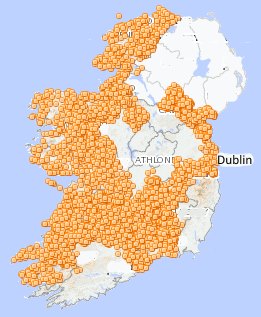 The National Folklore Collection's free website, Dúchas.ie, has added manuscripts written by pupils at schools in County Clare in 1937–39.
The National Folklore Collection's free website, Dúchas.ie, has added manuscripts written by pupils at schools in County Clare in 1937–39. The Schools Collection's online availability is now completed for the following counties: Clare, Donegal, Dublin, Galway, Kerry, Kildare, Kilkenny, Laois, Leitrim, Limerick, Louth, Mayo, Monaghan, Sligo, Tipperary, and Waterford. It is expected that the manuscripts for the remaining counties will be online by the end of 2016.
The Schools Collection's online availability is now completed for the following counties: Clare, Donegal, Dublin, Galway, Kerry, Kildare, Kilkenny, Laois, Leitrim, Limerick, Louth, Mayo, Monaghan, Sligo, Tipperary, and Waterford. It is expected that the manuscripts for the remaining counties will be online by the end of 2016.











